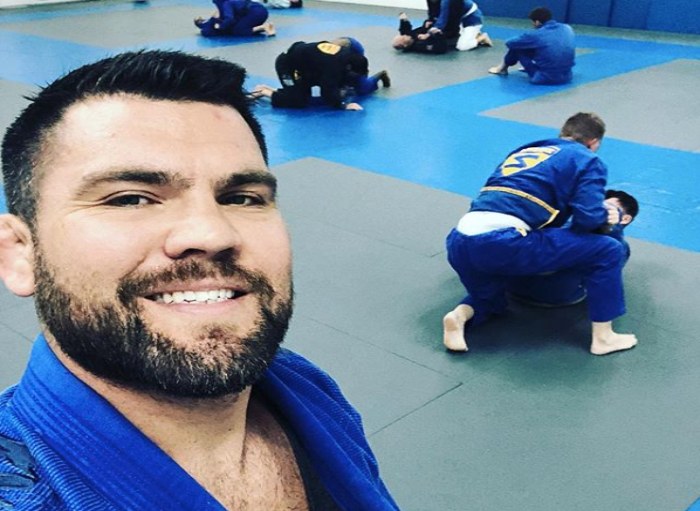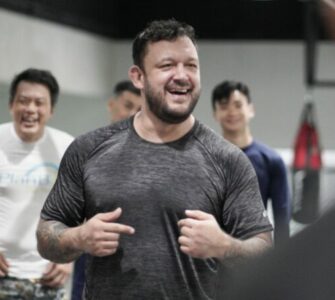Few published guidelines or standards determine when a practitioner is ready for promotion; the criterion is generally determined by individual instructors and/or academies.The IBJJF maintains an extensive graduation system that takes into account time-in-grade and membership standing, but makes no mention of specific performance or skill requirements. When instructors or academies comment on the criteria for promotion, the most widely accepted measures are the amount of technical and conceptual knowledge a practitioner can demonstrate, and performance in grappling (randori) within the academy and/or competition.
Technical and conceptual knowledge are judged by the number of techniques a student can perform, and the level of skill with which they are performed in live grappling, allowing smaller and older practitioners to be recognized for their knowledge, although they may not be the strongest fighters in the school. Brazilian jiu-jitsu is a distinctly individual sport, and practitioners are encouraged to adapt the techniques to their body type, strategic preferences, and level of athleticism. The ultimate criterion for promotion is the ability to execute the techniques successfully, rather than strict stylistic compliance.
Another criteria is ‘Image’. The Helio side of the family follows strict rules.
Helio Gracie did not allow, tattoos on the face, Dreadlocks or for the instructor to overweight or obese.
In a recent episode of the Mayn Idea Podcast, Brazilian Jiu-Jitsu black belt and author Robert Drysdale shared his controversial views on belt promotion in BJJ, sparking interesting debates within the martial arts community. Drysdale, known for his deep knowledge and experience in BJJ and also being an ADCC world champion, presented a unique perspective on what constitutes the criteria for belt promotion, emphasizing the importance of physical health, discipline, and accountability in the sport.
1. Emphasis on Physical Health: Drysdale suggested a rather unconventional criterion for belt promotion: measuring body fat. He argued that those who are obese should focus on losing weight before being considered for promotion, emphasizing that health should be a priority. He stated, “Being healthy is better than unhealthy,” highlighting the importance of fitness in martial arts.
2. The Role of Discipline and Accountability: Drysdale discussed the need for teaching core values like discipline, accountability, courage, and loyalty in BJJ. He observed that these values, once standard in martial arts, seem to have lost ground. By emphasizing these principles, he believes martial arts studios can play a crucial role in character building.
“These things are important… it’s hard to teach because you’re supposed to learn them at home.”
3. The Loss of Traditional Values: A significant part of Drysdale’s talk revolved around the erosion of traditional values in BJJ. He reminisced about a time when personal accountability was paramount, and blaming others for one’s loss was unthinkable. He contrasted this with the current trend where athletes often shift blame away from themselves, indicating a loss of accountability.
“The loss of accountability has been huge.”
4. Criticism of Self-Promotion: Drysdale strongly criticized the practice of self-promotion in BJJ, labeling it as embarrassing and a deviation from traditional values. He linked this behavior to society’s obsession with money and success, suggesting that financial incentives have overshadowed traditional martial arts values. “Promoting yourself was an embarrassment. It was embarrassing.”
Robert Drysdale’s insights provide a thought-provoking perspective on belt promotion in Brazilian Jiu-Jitsu. His emphasis on physical health, discipline, accountability, and the preservation of traditional values challenges current practices and sparks a necessary conversation about the direction in which martial arts, particularly BJJ, are heading.



















